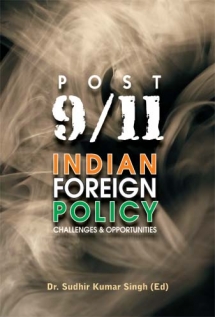
Post 9-11 Indian Foreign Policy
Dr. Sudhir K.Singh(Ed.)
Publisher: Pentagon PressSorry!
It looks like the publisher has not made this title available in USA / North America
India came into being after a long struggle against one of the
most powerful colonial power of the contemporary world in 1947.
The first Prime Minister of India Jawaharlal Nehru had two options
in the immediate aftermath of independence: first, to enter into an
alliance with either of the two existing blocks namely Capitalist block
led by the United States and the Communist block led by the USSR;
second, to maintain neutrality. Mr. Nehru opted for neutrality. The
then contemporary international scenario had presented an extremely
complex situation in the wake of cold war that was in its initial phase.
Nehru’s embrace of neutrality led to the emergence of Non Aligned
Movement (NAM). Although this decision have been under consistent
attack and has been criticized on various counts about its failures
towards not serving the purpose at several fronts. The Chinese attack
of 1962 was an ample proof of the adverse impact of that policy,
when India was face to face with the situation akin to the theory of
Prison Dilemma in international politics; i.e. either to seek the support
of USA or should it align with USSR.